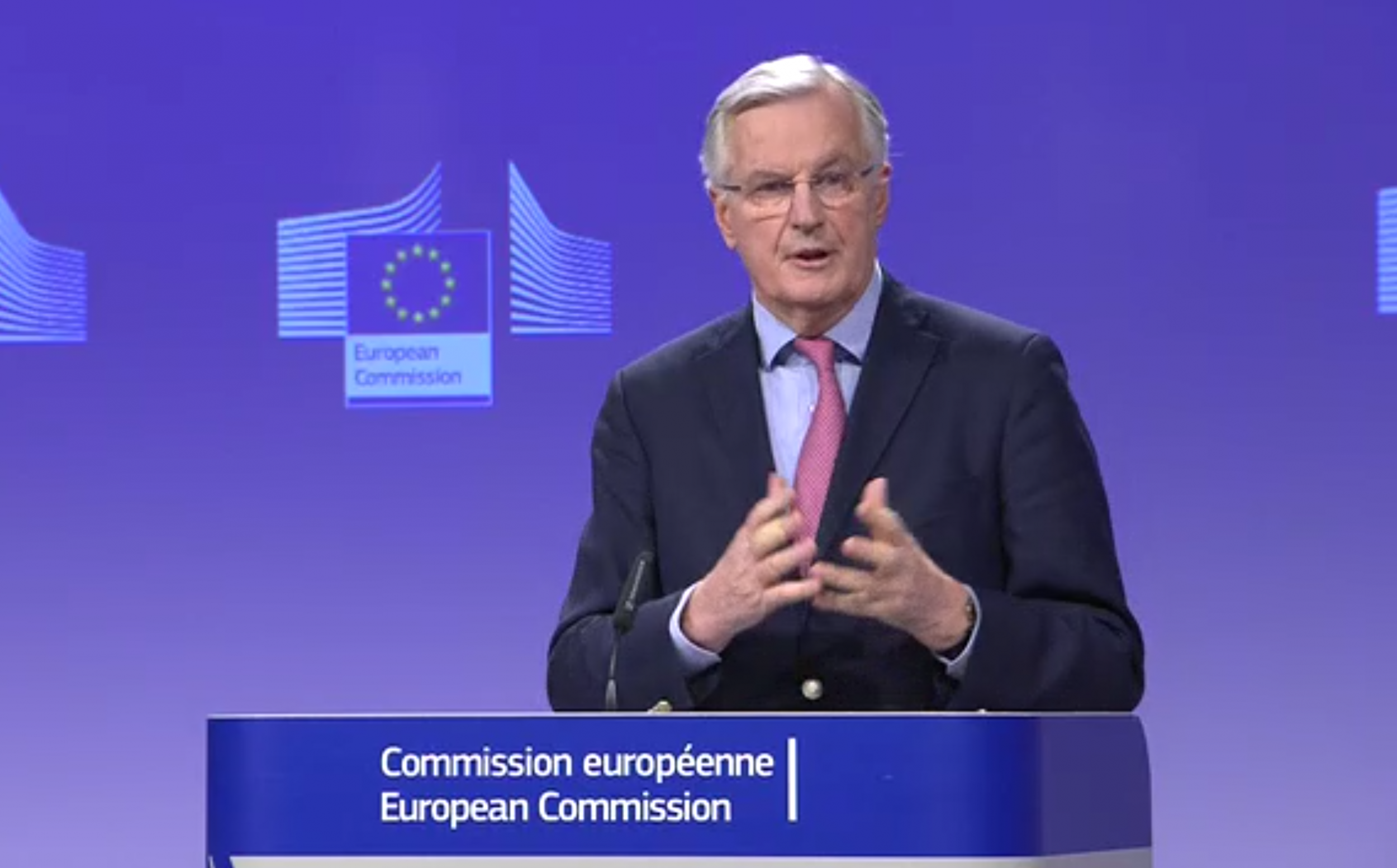Brexit: UK would have to pay even higher divorce bill for longer transition period
Exclusive: £39bn negotiated by Theresa May would go up under UK request

Britain’s Brexit divorce bill will soar by billions of pounds if it tries to extend the transition period beyond the date suggested by Brussels, EU officials have told The Independent.
Sources near the EU’s negotiating team said the UK would inevitably have to pay more – with the bill agreed by Theresa May already as high as £39bn – if it wants more time to prepare for its final break from the bloc.
It came after a British Government document opened the way for a transition that could go on longer than the EU’s proposed end-date of 31 December 2020, though Downing Street was adamant the period will still be around “two years”.
The prospect of a higher divorce bill, charged at millions of pounds a day, is likely to anger Tory Brexiteers as Ms May’s Cabinet gathers at Chequers today to try and hammer out a joint negotiating position for a trade deal with the EU.
Many hardline Eurosceptics are already uncomfortable with the idea of following EU rules with no say in making them – which some MPs have compared to making the UK a “vassal state”.
One EU official close to talks told The Independent the financial settlement would “of course” have to be renegotiated if the transition extended into the next budget period, while another added: “Britain will have to pay for any transition beyond 2020, probably annual payments with no rebate.”
In a statement published yesterday the Government said that the “period’s duration should be determined simply by how long it will take to prepare and implement the new processes and new systems that will underpin the future partnership” and that while “the UK agrees this points to a period of around two years” it “wishes to discuss with the EU the assessment that supports its proposed end date”.
British officials in Brussels would not be drawn on whether the UK would be prepared to pay more for a longer transition, but EU sources were adamant that talks on the financial settlement would have to be revisited were the transition extended.
Late last year Ms May agreed a methodology for calculating the divorce bill, with official estimates of a £34bn to £39bn final bill. The formula however assumed that the UK would contribute to the EU budget for 2019 and 2020 only, under the pretext that this would be the length of the transition during which Britain would continue to benefit from EU policies.
The transition end date proposed by the Commission coincides with the end date of the EU’s multi-year budget round, on 31 December 2020 – meaning any extension at all would see the UK step over the line into the next budget period, known in Brussels as the “multiannual financial framework”.
With a net contribution to the EU budget of around £8.1bn a year, the cost of an extended transition would be around £22.2m pound a day at the current rate – but only if the UK is allowed to keep its rebate and current credits as a member of the EU. The figure could be higher if the rebate were not extended.
The joint text agreed by both sides in December states that “the UK will contribute to, and participate in, the implementation of the Union annual budgets for the years 2019 and 2020 as if it had remained in the Union (including revenue adjustments), on the basis of the applicable Union legal provisions including the Own Resources legislation”.
Brexit minister Steve Baker told the BBC: “You can see that they want us to exit at the end of the budget period, the Prime Minister is suggesting two years. But what will be the case is, when we’ve agreed, there will be a fixed date.”
The Independent first reported last month that the UK was considering asking for a longer period – though the idea it will be much longer than two years has been denied by Ms May – because it was not sure that the duration proposed by Brussels would give it enough time to prepare.

Depending on the future trade deal struck with Brussels the UK might have to significantly overhaul the physical infrastructure of its ports and airports to cope with a dramatic increase in customs checks, as well as do other work that has yet to actually begin nearly two years after the referendum.
Though UK officials are adamant that an end date for the transition should be agreed by the March meeting of the European Council, the future trade relationship will not be agreed in full until after the UK has left the EU – making officials’ task of predicting how long the transition needs to be difficult.
Theresa May said in her Florence speech last year that she wants a transition period of “around two years”, with the EU’s suggested 21-month duration broadly fitting with the lower end of the PM’s proposal.
Today’s crunch away-day at Chequers comes amid continued disagreement in the Cabinet about what the end state should be, despite David Davis having added more meat on the bone with his speech in Vienna. The Brexit Secretary admitted this week that ministers would have to be “locked in a room all day” to work out differences between them.
The PM is expected to call for a high level of alignment between UK and EU rules, with divergence occurring only gradually over time. Mr Davis said this week he hoped the EU would recognise UK regulators as equivalent to the UK’s so that Britain could go its own way.
On Monday a letter signed by 62 Eurosceptic Tory MPs demanded tighter restrictions on the conditions of the transition period. The suggestions appear to be absent from the UK’s amendments.
Join our commenting forum
Join thought-provoking conversations, follow other Independent readers and see their replies
Comments